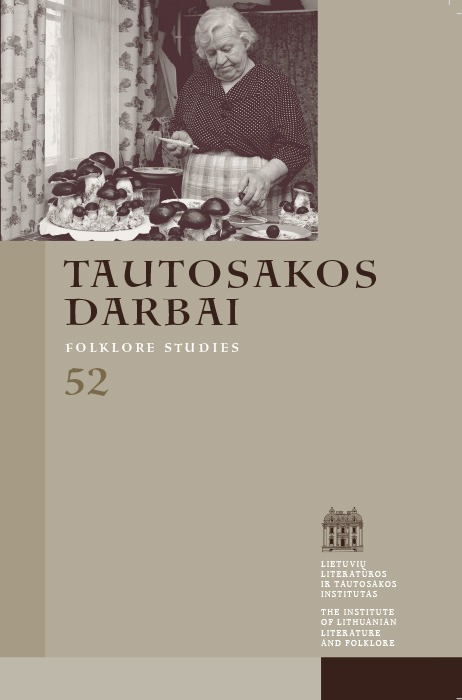Attitudes of the Inhabitants of the Lithuania Minor towards the Medical Treatment in the First Half of the 20th Century
Abstract
The aim of the article is elucidating the attitudes of the Lithuanian-speaking inhabitants of the Lithuania Minor (lietuvininkai) towards the medical treatment (the choice of the doctor and healing) that prevailed in the first half of the 20th century. The author addresses the following issues: 1) who used to treat the members of families and communities; 2) whom people most commonly turned to in case of serious illness and what methods of healing they used; 3) what kind of distinction (if any) there was between the official and the folk medicine. The purpose of analysis is discerning the sociocultural peculiarities of the Lithuanians living in the Lithuania Minor in the first half of the 20th century.
The author analyzes unpublished ethnographic materials collected during fieldwork sessions by the students of the Department of the Baltic Philology, Faculty of Humanities and Education Sciences, Klaipėda University, and compares this data to the published sources and research studies. Altogether, the subject of analysis includes 107 narratives by the local inhabitants of the Lithuania Minor. Exact time framework is not established. The social surroundings of the informants include families and communities of their native villages and small towns. By using the historical comparison and the analytic method to deal with ethnographic narratives and historiographic data, the author attempts reconstructing the notions of Lithuanians living in the Lithuania Minor in the first half of the 20th century of their “own” and “foreign”.
According to the results of the analysis, the author maintains that the concepts of illness and ways of treatment, entrenched in the family and community traditions, as well as people’s “own” habits and conservative attitudes supported and widened the gap between the official and the folk medicine.
In the beginning and in the middle of the 20th century, the Lithuanians living in the Lithuania Minor habitually regarded the verbal charms, commonly used in the folk medicine, rather negatively. The performed comparison of analyzed narratives with the available historiographic research enables the author to maintain that in most cases the Lithuanians living in the Lithuania Minor adopted rather more modern ways of behavior than the inhabitants of the mainland Lithuania. Therefore, their attitude towards the “magical” means of treatment indicates the peculiar aspects of social modernization in the Lithuania Minor.
However, in case of serious illness the gap between the official and the folk medicine closed or lost its importance. The fear of death made the economic and social considerations irrelevant. Similarly, the fear of death or disablement could reinforce the cultural differences affecting the outcome of the choice between the official treatment and the folk medicine.
